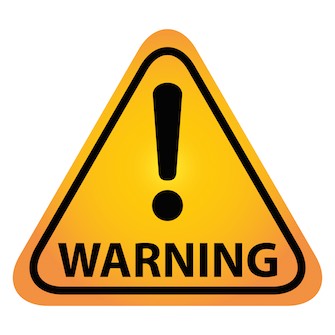Relative Terminology: Like, just don’t use it in the claims
 The use of relative terminology, which are short-hand terms that express a certain similarity, are quite common in everyday conversation, but present real and present dangers when used without serious deliberate thought and consideration in a patent application. The use of relative terminology is most seriously problematic in patent claims specifically. This is true because patent claims must particularly point out and distinctly claim the subject matter invented. See Distinctly identifying the invention in exact terms. Therefore, the use of relative terminology in patent claims comes with real risks that must not be taken lightly.
The use of relative terminology, which are short-hand terms that express a certain similarity, are quite common in everyday conversation, but present real and present dangers when used without serious deliberate thought and consideration in a patent application. The use of relative terminology is most seriously problematic in patent claims specifically. This is true because patent claims must particularly point out and distinctly claim the subject matter invented. See Distinctly identifying the invention in exact terms. Therefore, the use of relative terminology in patent claims comes with real risks that must not be taken lightly.
Relative terminology is problematic because certain words that you might want to use are not nearly as descriptive as you might think. The description you are providing by relying on relative terms can leave open the possibility of miscommunication and ambiguity. Ambiguity is the archenemy of patent drafters and must be avoided.
Accused Infringer Uses Reexamination To Defeat Willfulness Allegation
Scott Daniels, partner at Westerman, Hattori, Daniels & Adrian LLP and Practice Center Contributor, sent along his analysis on the recent District Court decision, Plumley v. Mockett. In a decision that may surprise many, the District Court held that the accused infringer may use reexamination to obtain summary judgment of no willful infringement. According to Daniels, “the first goal of a third party requesting reexamination is to invalidate the patent claims. But even if the Patent Office confirms the validity of the claims, the reexamination may significantly benefit the requester on other issues, such as claim construction, infringement, and inequitable conduct.”
Below is Scott Daniels’ analysis…
A party accused of patent infringement requests reexamination at the PTO to attack the patent as being anticipated or obvious in view of a prior art patent or printed publication. An accused infringer, however, may also achieve other less obvious goals by seeking reexamination, such as creating an estoppel, creating a disclaimer limiting claim scope, or establishing the materiality of a prior art reference for an inequitable conduct defense. Or, as in Plumley v. Mockett, the accused infringer may use reexamination to obtain summary judgment of no willful infringement. 2010 U.S. Dist. LEXIS 57254 (C.D. Cal. May 26, 2010). (more…)
06.21.10 | District Court Cases, Patent Litigation, posts, Reexamination Requests | Stefanie Levine



No Comments
03.10.16 | Patent Applications, Patent Drafting, Patent Issues, Patent Prosecution | Gene Quinn